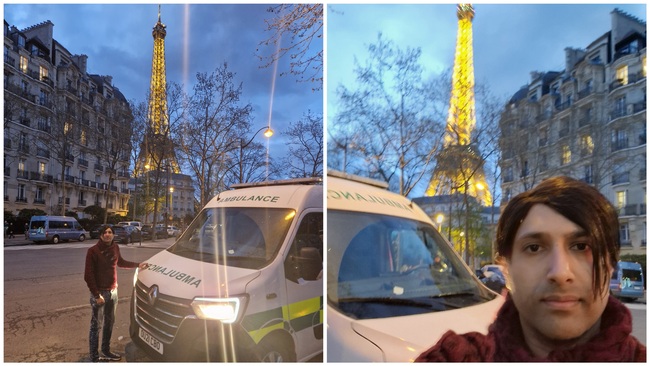Umran Ali Javaid, a Scottish student, is currently en route to Gaza, driving an ambulance to aid civilians amidst the conflict, marking a significant phase in his journey over 1500 miles from the start. Javaid, who has a history of delivering ambulances to war-torn regions such as Ukraine and Syria, is making strides in his latest humanitarian effort.
After acquiring the ambulance in January and obtaining the necessary clearance from COGAT in Israel by March, Javaid is poised to reach the Rafah border soon, where he plans to transfer the ambulance to UNRWA, the principal humanitarian agency in Gaza.
The initiative, driven by Javaid’s studies in International Tourism and Event Management, aims to provide urgent medical care to war-affected civilians, particularly children. He asserts, “During war innocent civilians especially children need help, the ambulance can transport those that are injured and infants as it is equipped with a neo-natal ventilator.”
Javaid’s resume includes the delivery of 40 second-hand ambulances to various conflict zones, with a notable mission to Ukraine last September to support a local hospital.
The journey to Gaza requires intricate preparation and coordination, involving approvals from both COGAT in Israel and Egyptian authorities. Javaid’s route from Glasgow has taken him across several European nations, with plans to proceed through Greece and Turkey before sailing to Egypt, en route to the Rafah border.
Javaid’s expedition is bolstered by continuous communication with various authorities and the support of those aiding his cause. Reflecting on his experiences, he shares, “Innocent civilians are always the first to be impacted by the horrors of war. Heartbreaking to see what is going on in the region.”
He praises the design and functionality of British ambulances in providing immediate medical support and facilitating the safe evacuation of civilians: “British ambulances are equipped to help patients needing immediate medical support. They also have distinct marking and sirens which clearly identifies them, enabling them to evacuate civilians from danger zones.”
Javaid recounts a distressing account shared by a journalist about the lack of portable ventilators in a hospital, leading to infant fatalities.
He describes the ambulance as a high-dependency unit, equipped to support a wide range of medical needs, but acknowledges the broader context of the humanitarian crisis: “That said, one ambulance can only help a few hundred people in the coming months which is a drop in the ocean compared to what is needed.”






